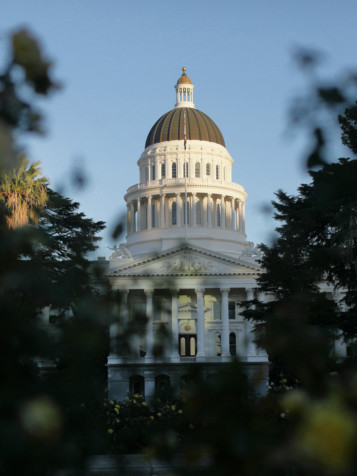
California lawmakers passed a bill mandating a formal apology for the ongoing harms of slavery, an institution that wasn't legal but was tolerated after statehood in 1850.
The bill requires officials to sign and display a plaque in the state capitol that includes the following: "The State of California apologizes for perpetuating the harms African Americans faced by having imbued racial prejudice through segregation, public and private discrimination, and unequal disbursal of state and federal funding and declares that such actions shall not be repeated."
The measure now goes to Governor Gavin Newsom to be signed or vetoed by Sept. 30. Newsom, a Democrat, also has the option of allowing the bill to become law without his signature.
The formal apology is one of more than a hundred recommendations made in a 2023 report by a California task force on reparations for the effects of slavery. The panel found that discriminatory laws and unlawful property seizures perpetuated after California joined the union "- despite its legal status as a free state "- have contributed to significant gaps in wealth, education and health for generations of Black residents.
The apology is among almost a dozen reparations measures advanced this year by the California Legislative Black Caucus.
Another bill under consideration would establish a new state agency to help descendants document racially motivated property seizures in the past. Other measures will fund health care and job training in Black communities, as well as criminal justice reforms.
"One of the questions we are continually asked by our colleagues is 'Why California?'" Assembly Member Lori Wilson, a Democrat who chairs the state's Black caucus, said in an interview. "We have made a lot of progress in getting people to understand what reparations means and going back to that root word of 'repair' and repairing the damage caused by the legacy of slavery and generations of discrimination."
There are currently no plans for cash payments "- the most controversial form of reparations "- to eligible descendants of people who were enslaved or deprived of property, Wilson said. According to a 2023 poll by the Institute of Government Studies at the University of California at Berkeley, 59% of the state's voters oppose cash reparations.
Budget Constraints
Newsom enthusiastically supported the creation of the reparations task force in 2020, after the murder of George Floyd by a Minneapolis police officer touched off national protests. Since then, the governor has been more circumspect.
"Dealing with the legacy of slavery is about much more than cash payments," he said in a 2023 statement. His office didn't respond to a request for comment on the legislation passed this week.
In addition to political considerations, Newsom must take severe budget constraints into account. In July, the governor negotiated with legislators to close a $47 billion deficit. The $298 billion spending plan approved for 2024-25 includes only $12 million for actions recommended by the reparations task force.
Reparations advocates say they were careful not to add to the deficit by starting with measures that have minimal fiscal impact. The apology plaque, for example, is estimated to cost $150,000.
Wilson said further reparations bills will be introduced over the course of several years. In its 2023 report to the legislature, California's reparations task force documented an $800 billion impact from discriminatory practices such as unlawful property seizures, redlining, and educational and health disparities affecting Black residents.
"We are educating our colleagues one bill at a time," she said. "When people learn and understand, they are all in, but we still have work to do."











